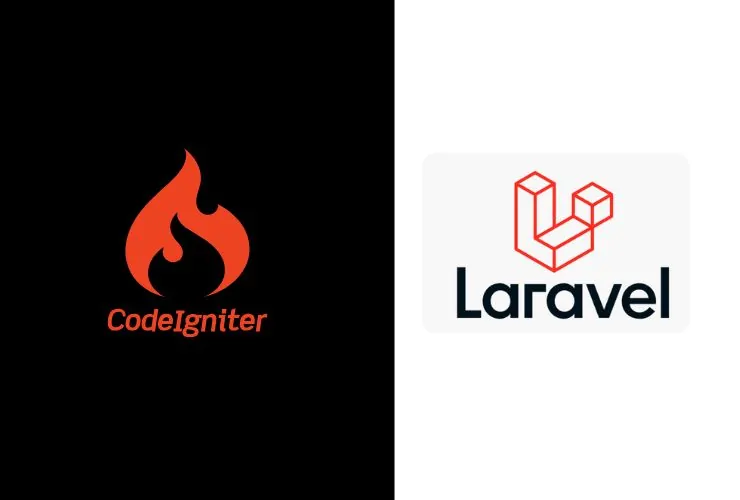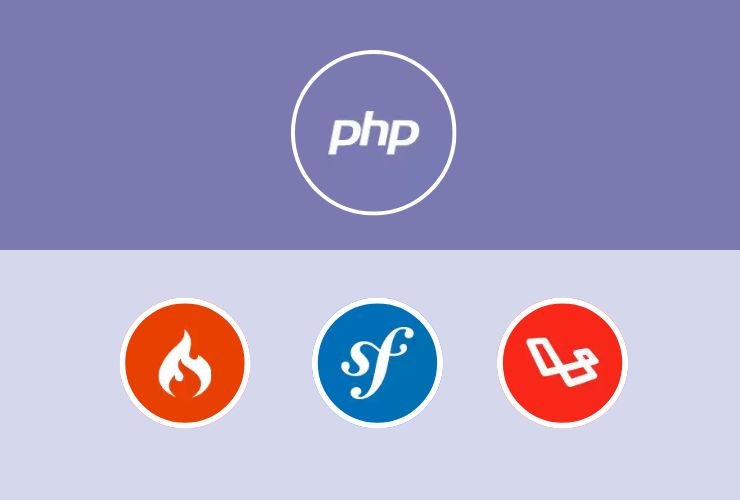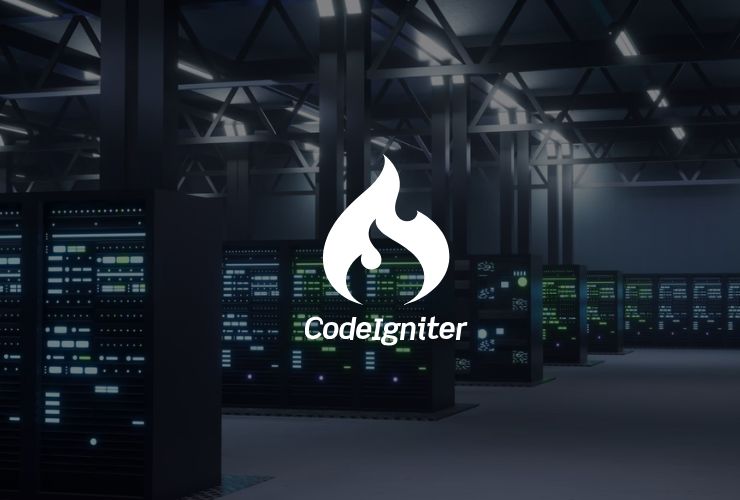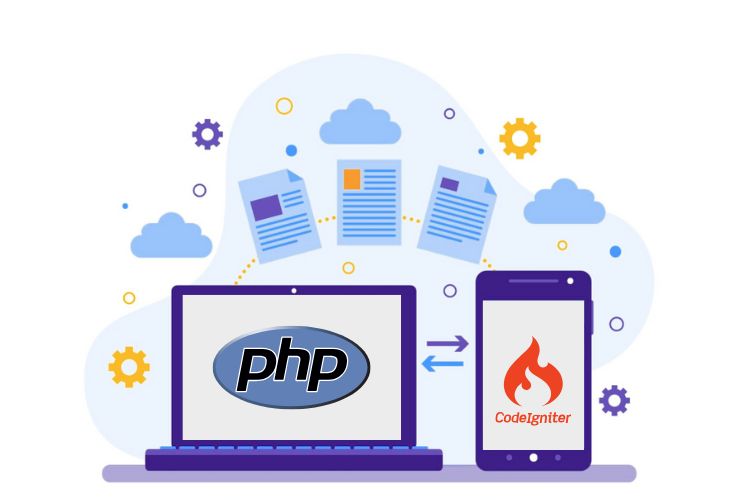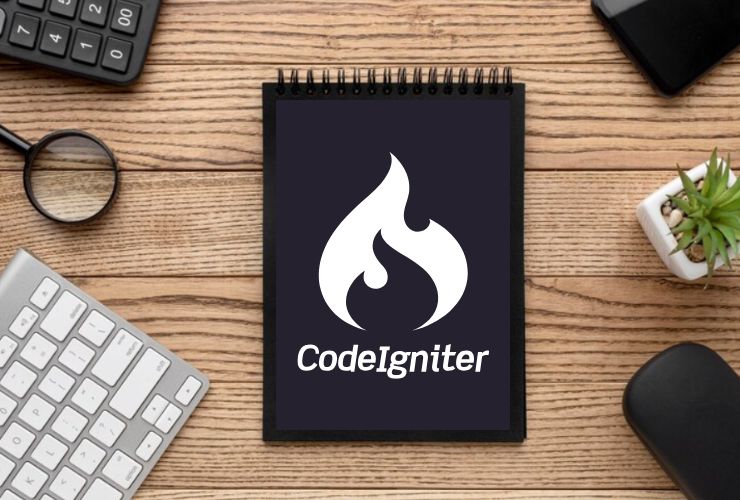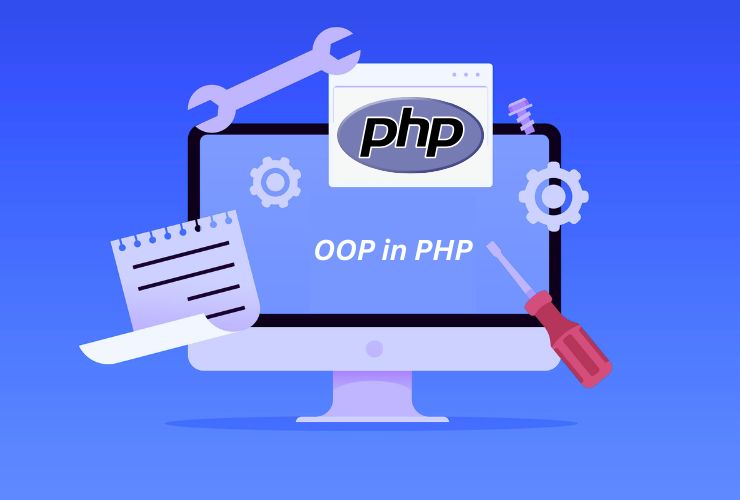PHP frameworks have taken the development of web applications in a new direction. They offer structured environments, reusable code, and fast development cycles. Of the many PHP frameworks available, CodeIgniter and Laravel are foremost because they are robust frameworks, scalable, and powered by large communities. However, when it comes to evaluating which framework is necessary for your project, these two frameworks have more differences than commonalities. This blog investigates to build a detailed comparison between CodeIgniter and Laravel and help you with your decision-making process.
CodeIgniter Overview
It is a lightweight PHP framework based on MVC architecture. CodeIgniter is best known for its simple, straightforward, easy to understand programming style, and its easy configuration framework. It is one of the best frameworks for developers who want to develop a fast, efficient small to medium-scale web application and spend the least amount of time in development. It does not require any complex installation and coding setup that is often associated with PHP frameworks.
The key features of CodeIgniter include:
- Lightweight, fast operation
- Strong performance even on low-spec hardware
- Requires minimal configuration and set-up
- Useful built-in libraries for common operations (for example, email, sessions, and form validation)
- Flexible MVC architecture
- Simple Diff, Github compatibility
- Great documentation and community support
Use Case:
CodeIgniter is most suited for startups, small businesses, and other projects that require a fast turnaround with minimal complications.
Summary of Laravel
Laravel is a full-featured PHP framework that is modern and designed for building complex, enterprise-level web applications. It offers advanced support for routing, authentication, caching, database migrations, and a host of other features. Laravel is built with an emphasis on developer productivity and an elegant syntax which is why it is a go-to framework for modern PHP developers.
Key Features of Laravel:
- Rich feature set, including Eloquent ORM, Blade templating, and Artisan
- Built-in authentication, authorization, and security
- Strong ecosystem of tools with official packages for testing, queues, notifications
- Robust support for microservices and RESTful APIs
- Active community with deep resources
Use Cases:
Laravel is perfect for large applications, SaaS, eCommerce, and projects requiring a robust security model that can scale.
Key Differences Between CodeIgniter and Laravel
| Feature | CodeIgniter | Laravel |
|---|---|---|
| Learning Curve | Low; easy for beginners | Moderate to high; requires understanding of modern PHP concepts |
| Performance | Lightweight, faster for small apps | Slightly heavier due to rich features, optimized for scalability |
| Routing | Simple and straightforward | Advanced routing with support for RESTful APIs |
| Templating Engine | Basic PHP views | Blade templating engine for reusable layouts and components |
| Security | Manual implementation required | Built-in CSRF protection, authentication, encryption |
| Database | Simple Active Record pattern | Eloquent ORM with powerful query builder |
| Community & Support | Mature but smaller community | Large, active community with frequent updates |
| Use Case | Small to medium apps, MVPs | Complex enterprise apps, SaaS, APIs, eCommerce |
When to Use CodeIgniter
- You need fast development with minimum configuration
- The projects you will be working on are small-to-medium sized
- The developer team is comfortable using procedural PHP
- You feel more comfortable using lightweight frameworks that load quickly.
- The project has simple routing and few dependencies
When to Choose Laravel
- You’re building large-scale or enterprise-level applications
- You need advanced security built directly into the framework
- Your application will need to use RESTful APIs, microservices, and/or complex database interactions.
- You want to use modern PHP tools that are supported by the community
- You are looking for a framework that lends itself to long-term scalability and maintainability
Performance Considerations
- Because CodeIgniter is a lightweight framework, it is generally faster than Laravel for small applications.
- Although Laravel is a larger framework than CodeIgniter, it has performance optimization features such as caching, queue management, and database indexing, and can still meet the needs of large applications that will receive a lot of traffic.
Tip: Tuning the performance in either of the frameworks can yield such a change in speed if you use caching mechanisms, share resources where you can optimize databases, and try to minimize the number of third-party libraries.
Security Comparison
- CodeIgniter requires implementation of CSRF protection, input validation, and encryption by the developer.
- Laravel has built in support for CSRF protection, password hashing, user authentication, and secure database access, which makes it less prone to vulnerabilities.
Security is a big consideration for any application that manages sensitive data, financial transactions, or compliance.
Support and Community
- CodeIgniter: Smaller but mature community; great documentation.
- Laravel: Large, active community with regular updates, tutorials, and third-party packages.
Choosing to work with a framework with a robust community often means regular updates from the framework, quicker response to bug fixes, and lots of community support for troubleshooting.
Our CodeIgniter & Laravel Development Services at Empirical Edge
At Empirical Edge, we offer custom web application development using CodeIgniter and Laravel, based on the needs of your business.
Our services include:
- Custom CodeIgniter Development – Custom, high-performance, light-weight applications that are easy to deploy.
- Laravel Web Applications – Enterprise level solutions with advanced features and solid security.
- API Development & Integration – RESTful API and third-party integration on any web application.
- Performance Tuning – Fast, scalable, secure web solutions.
- Maintenance & Support – Keeping your applications updated and secure.
Conclusion
Both CodeIgniter and Laravel have unique strengths. CodeIgniter is ideal for simple, fast-to-deploy projects, while Laravel excels in building large, secure, and scalable applications. Your choice depends on project complexity, team expertise, scalability needs, and long-term maintenance requirements.
Build high-performance web applications with the right PHP framework. Contact Empirical Edge today to get expert guidance on choosing between CodeIgniter and Laravel for secure, scalable, and future-ready development.
Frequently Asked Questions
CodeIgniter is a lightweight framework ideal for small to medium applications, while Laravel is a feature-rich framework designed for complex and enterprise-level projects.
CodeIgniter has a low learning curve and simple configuration, making it easier for beginners compared to Laravel, which requires knowledge of modern PHP concepts.
Laravel includes built-in security features such as CSRF protection, authentication, and encryption, whereas CodeIgniter often requires developers to implement these manually.
CodeIgniter is generally faster for smaller apps due to its lightweight structure, while Laravel provides optimization tools like caching and queue management for large-scale applications.
Laravel is ideal for enterprise apps, SaaS platforms, and projects requiring advanced security, APIs, and long-term scalability.

